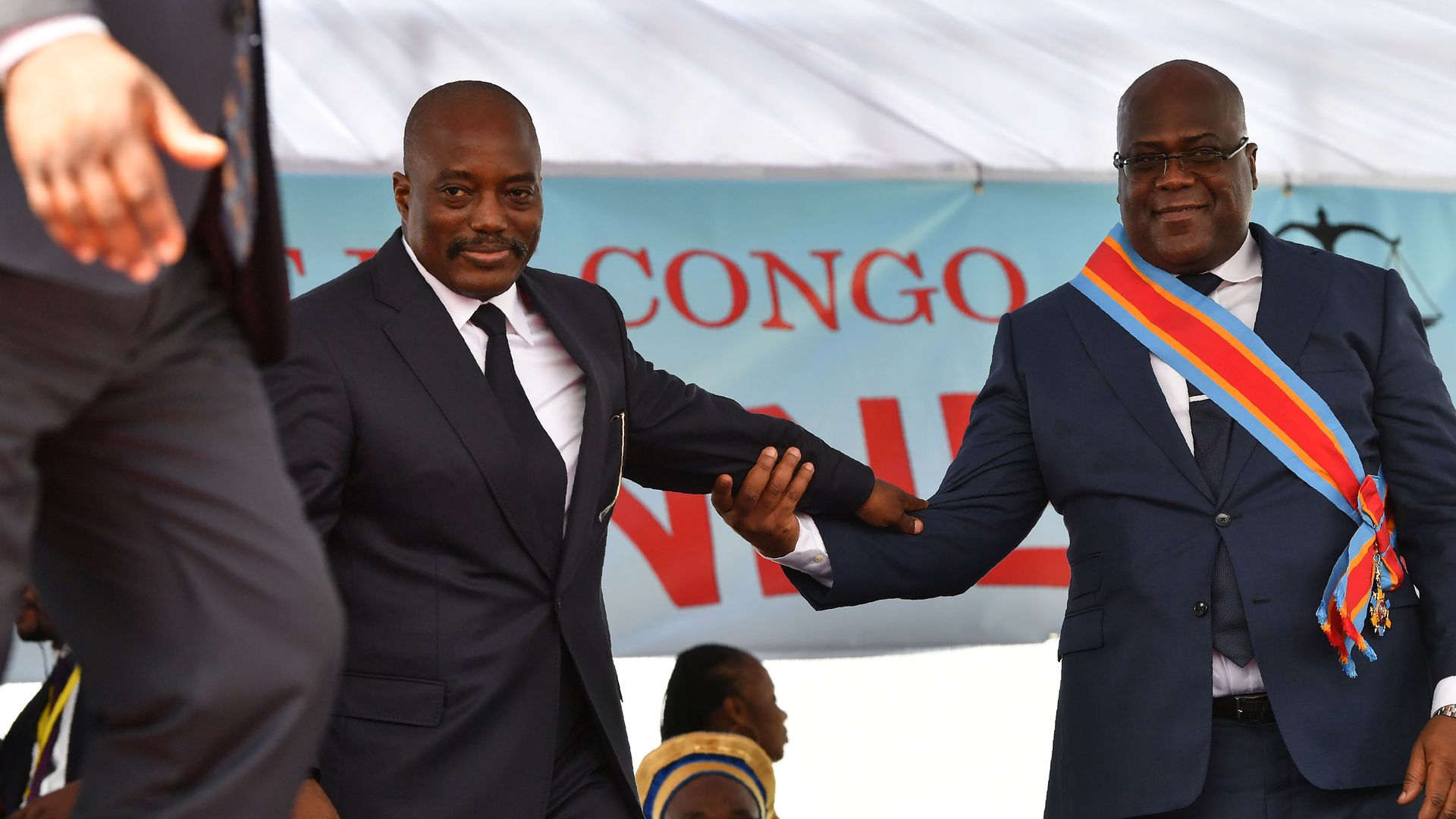Feb 11, 2021 - World
Tshisekedi winning power struggle in Democratic Republic of Congo
Add Axios as your preferred source to
see more of our stories on Google.

An awkward grip: Kabila (L) at Tshisekedi's inauguration in Jan. 2019. Photo: Tony Karumba/AFP via Getty
